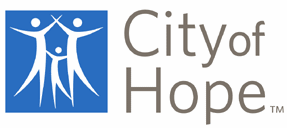Phase I Study of Cellular Immunotherapy for Recurrent/Refractory Malignant Glioma Using Intratumoral Infusions of GRm13Z40-2, An Allogeneic CD8+ Cytolitic T-Cell Line Genetically Modified to Express the IL 13-Zetakine and HyTK and to be Resistant to Glucocorticoids, in Combination With Interleukin-2
| Status: | Recruiting |
|---|---|
| Conditions: | Cancer, Brain Cancer |
| Therapuetic Areas: | Oncology |
| Healthy: | No |
| Age Range: | 18 - 70 |
| Updated: | 7/16/2013 |
| Start Date: | May 2010 |
RATIONALE: Biological therapies, such as cellular adoptive immunotherapy, may stimulate the
immune system in different ways and stop tumor cells from growing. Donor T cells that are
treated in the laboratory may be effective treatment for malignant glioma. Aldesleukin may
stimulate the white blood cells to kill tumor cells. Combining different types of biological
therapies may kill more tumor cells.
PURPOSE: This phase I trial is studying the side effects and best way to give therapeutic
donor lymphocytes together with aldesleukin in treating patients with stage III or stage IV
malignant glioma.
PRIMARY OBJECTIVES:
I. To assess the safety of GRm13Z40-2 CTL CNS loco-regional cellular immunotherapy in
research participants with recurrent or refractory/ progressive malignant glioma (WHO Grades
3 or 4).
II. To assess the safety of convection enhanced delivery (CED) of recombinant human
Interleukin-2 (rhuIL-2) used in conjunction with GRm13Z40-2 CTL adoptive transfer.
SECONDARY OBJECTIVES:
I. To investigate the ability of 9-(4-fluoro-3-hydroxy-methyl-butyl) guanine (18FHBG)
positron emission tomography PET to image GRm13Z40-2 CTL's in research participants.
II. To study the impact of concurrent dexamethasone administration on the tempo and
magnitude of T cell allograft rejection responses in treated research participants by
tracking the frequency of anti-GRm13Z40-2 immune responses in serially acquired peripheral
blood samples.
III. To evaluate ganciclovir administration for ablating transferred GRm13Z40-2 in vivo
should significant graft-mediated toxicities be encountered.
OUTLINE: Patients receive GRm13Z40-2 therapeutic allogeneic lymphocytes intratumorally (IT)
over 10 minutes on days 1 and 3 and aldesleukin IT over 3 hours on days 2-5 (days 1-5 in
week 2). Treatment repeats every week for 2 courses in the absence of disease progression or
unacceptable toxicity.
After completion of study treatment, patients are followed annually for at least 15 years.
Inclusion Criteria:
- Histological verification of grade III or IV MG at original diagnosis
- Radiographic evidence of progression/recurrence of the measurable disease more than
12 weeks after the end of radiation therapy
- Expression of IL13Ralpha2 by immunohistochemistry
- Karnofsky performance status (KPS) >= 60
- Disease recurrence/progression in the cerebral hemisphere, which is in at least one
area of enhancement amenable to biopsy after protocol enrollment in the following
locations:
- Adjacent or near previous resection cavity
- Distant from primary location; this includes tumor spread to contralateral
hemisphere, corpus callosum, thalamus, basal ganglion, or subependymal locations
- Research participant has recovered from toxicity of prior therapies; an interval of
at least 12 weeks must have elapsed since the completion of radiation therapy; at
least 6 weeks since the completion of a nitrosourea-containing chemotherapy regimen;
and at least 4 weeks since the completion of a non-nitrosourea-containing cytotoxic
chemotherapy regimen; if a patient's most recent treatment was with a targeted agent
only, and s/he has recovered from any toxicity of this targeted agent, then a waiting
period of only 2 weeks is needed from the last dose and the start of study treatment,
with the exception of bevacizumab where a wash out period of at least 4 weeks is
required before starting study treatment
- History of prior treatment with Temodar if no evidence of intolerance; documentation
of intolerance to Temodar is not required
- Creatinine < 1.6
- White blood cell (WBC) >= 2,000/dl (or absolute neutrophil count [ANC] > 1,000)
Platelets >= 100,000/dl unsupported by transfusion or growth factor, international
normalized ratio (INR) < 1.3
- Bilirubin < 1.5
- Serum glutamic oxaloacetic transaminase (SGOT) and serum glutamic pyruvic
transaminase (SGPT) < 2 X upper limits of normal
- Female research participants of childbearing potential must not be pregnant as
evidenced by a serum beta-HCG pregnancy test obtained within 7 days of enrollment
- Research participants having reproductive potential must agree to use effective
contraception during participation on this protocol
- In the opinion of the neurosurgeon, research participant requires on-going
dexamethasone therapy
Exclusion Criteria:
- Survival expectation less than 4 weeks
- Pulmonary- Requirement for supplemental oxygen use that is not expected to resolve
within 2 weeks, Cardiac- Uncontrolled cardiac arrhythmia, hypotension requiring
pressor support, Renal- Dialysis dependent, Neurologic- refractory seizure disorder,
clinically evident progressive encephalopathy
- Tumors with the following characteristics:
- Large tumor recurrence causing significant symptoms from brain shift or mass
effect, and thus not requiring "decompressive" craniotomy
- Tumors located primarily in the basal ganglion or thalamus
- Tumors with significant involvement of midbrain, cerebellum, pons and medulla
will be excluded due to neurological risks associated with edema exacerbation
from therapy
- Research participants with any non-malignant intercurrent illness which is either
poorly controlled with currently available treatment, or which is of such severity
that the investigators deem it unwise to enter the research participant on protocol
shall be ineligible
- Positive human immunodeficiency virus (HIV) serology based on testing within 4 weeks
of enrollment
- Research participants being treated for severe infection or who are recovering from
major surgery are ineligible until recovery is deemed complete by the investigator
- Failure to understand the basic elements of the protocol and/or the risks/benefits of
participating in this pilot study
- History of ganciclovir and/or magnetic resonance imaging (MRI) contrast allergy or
intolerance History of intolerance to IL-2
We found this trial at
1
site
Click here to add this to my saved trials
